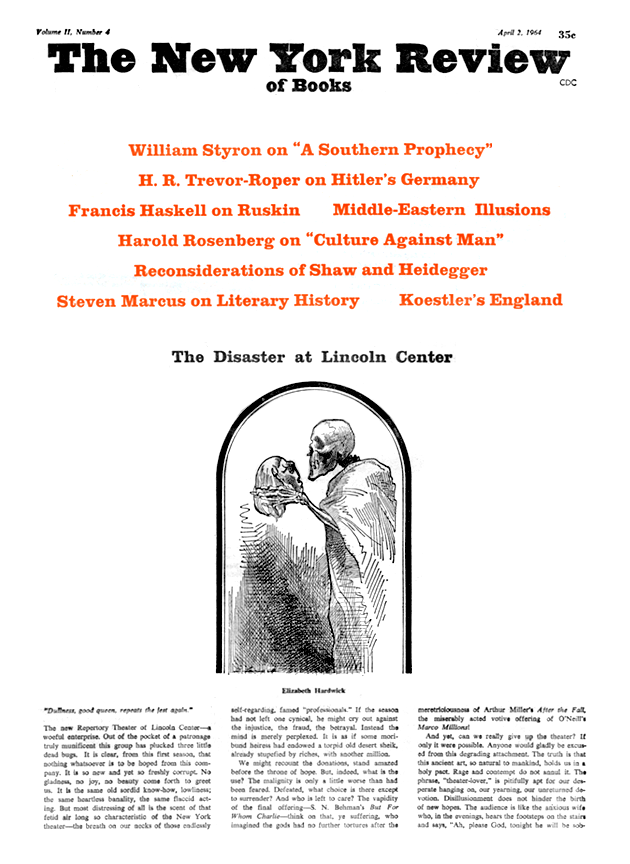In response to:
Strangelove & Fail-Safe from the March 5, 1964 issue
To the Editors:
Efforts at thinking on the part of movie critics should be encouraged but not at the cost of truth and common sense. Robert Brustein’s remarks about my The Fail-Safe Fallacy offends against both. He conceals from your readers that my essay is merely an expanded version of my New Leader book review. The actual text runs to less than 27 small pages and not, as he carefully misstates, “some eighty odd pages.” The whole thing could easily be carried in about three pages of your review.
I find amusing Brustein’s belated admission that Fail-Safe is a “cheap fantasy” and at the same time his illogical contention that my criticism of it proves that I am an enemy of the “imaginative” and “poetic” mind. With the authority of a policeman on a literary beat, he declares that The Fail-Safe Fallacy should never have been written because such fantasies do not require “any kind of criticism.” This is absurd on its face. Many shoddy works have had pernicious effects. The point Brustein misses is that Fail-Safe claimed to be not fantasy but sober “truth.” And the evidence shows it had had a terrific impact on its readers. My review exposed its claim to “truth” about the inescapability of accidental war. This is where the shoe really pinches Brustein.
I plead guilty to a rational, not “rationalistic,” approach to problems. I do not know how they can be solved, if at all, by any other approach especially one that disregards evidence and reason. Those who like Brustein merely emote about an “irrational problem” are making a philosophy out of their incapacity to think.
Sidney Hook
Department of Philosophy
New York University
New York City
This Issue
April 2, 1964


